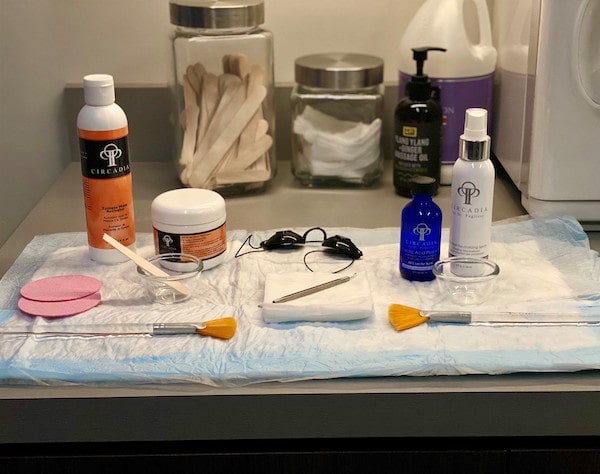Healthy Skin Is In!
Posted September 01, 2021 in Skincare Products
Did you know the skin is the largest functioning organ of the human body? It is the second most complex organ, next to the brain. Just a few of its functions are protection, absorption, and regulation. As we age, the functions of our skin begin to slow down. After the age of 28, our skin cells are turning over every 28-30 days and we begin to lose 1% of that turnover every year after. It is important to keep your skin cells turning over to slow down the aging process and improve the health of your skin as you age. Imagine your skin is like a mattress. The collagen is the firmness and thickness, and the elastin is the springs for support. As our skin cells begin to slow down, the collagen and elasticity of our skin is compromised.

The most important thing you can do for your skin is begin a medical grade skincare product regimen at home. A rule of thumb for our aestheticians, Kristi and Carla, is that 80% of your skin health is an at home regimen with medical grade skincare and 20% professional skincare treatments such as facials, lasers, and chemical peels.
Knowing how to take care of your skin can be overwhelming if you don’t know where to begin. That’s where we come in!
Let’s talk about what a simple medical grade skincare regimen looks like.
Step 1: Cleanser
First things first, Carla or Kristi will help you choose a cleanser that is right for your skin type (oily, dry, combination or normal). As the seasons change, so will your skincare needs, so you may need more than one. A common mistake people make with cleansers is using a bar soap on their face which strips your skin barrier, leaving your skin compromised.
Step 2: Exfoliation
Exfoliation is important to help your skin with cell turnover and should be done 2-3 times a week. You can exfoliate your skin in three different ways. Products that contain alpha hydroxy acid or beta hydroxy acid, mechanical exfoliation through microdermabrasion or lasers, and physical exfoliation using granular scrubs. All skin types need exfoliation. If you are not exfoliating the dead skin cells, the products you apply may sit on top of your dead skin cells, not giving the results you desire.
Step 3: Serum
What is a serum? A serum can be either an antioxidant or a treatment applied to the skin after cleansing to benefit your skin’s function. Types of serums may include a Vitamin C, Hyaluronic Acid, or a Retinol. Serums are one of Kristi and Carla’s “must-have” products in your skincare regimen. They are often chosen based on your skincare needs.
Step 4: Moisturizer
ALL skin types need moisturizer. There is a myth that oily skin does not need moisture, however, proper moisture in your skin is about water, not about oil. Maintaining your moisture prevents trans-epidermal water loss. This will give your skin its healthy glow and will prevent lack luster.
Step 5: SPF
Did you know that SPF stands for sun protection factor? The importance of SPF is to protect your skin from the sun’s harmful UV rays and other environmental factors. Wearing SPF consistently will help prevent premature aging of the skin that can lead to skin cancer. At The Wake Plastic Surgery MedSpa we recommend wearing SPF 365 days a year.
Our licensed medical aestheticians Kristi and Carla are happy to discuss the right skincare plan for you and answer any questions you may have about your current skincare regimen. Call today to schedule your consultation and get started on your skincare journey!
